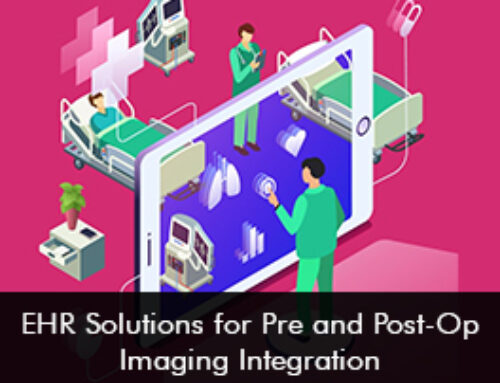Technology continues to play a key role in the ever-evolving landscape of healthcare. We saw a huge shift to digital patient records with the introduction of Electronic Health Records (EHR) Software. Now, another change has begun with the emergence of Artificial Intelligence (AI).
As the world seems to be moving past the idea of “AI hype” we must begin to consider and analyze how to effectively utilize AI and bring measurable benefits to patient outcomes.
Just like any other technology, AI has its drawbacks, so it’s also important to consider these and take precautions to ensure effective, responsible, and ethical use of AI.
What is AI?
How exactly can we define AI? Artificial Intelligence (AI) refers to the idea of intelligent machines. It refers to machines that can simulate human intelligence. Such machines may be able to recognize speech, translate languages, or (as we’ve now seen with some LLMs and chatbots) diagnose medical conditions.
Perhaps the first thing that comes to mind is ChatGPT, and other such large language models (LLMs) – software capable of taking natural language as input and then giving an appropriate output. As versatile and exciting as that can be, the scope of potential applications for AI is much wider.
EHR software solutions have already been able to use machine learning algorithms for a while now (machine learning is a subset of artificial intelligence), and such algorithms can be powerful tools in the wider context of healthcare.
Earlier this year, Receptor.AI – a London-based drug discovery company – utilized NVIDIAs BioNeMo cloud APIs to utilize generative AI (and other AI techniques) to accelerate drug discovery.
Benefits of AI in EHR Software
The integration of AI in Electronic Medical Records Software offers a lot of benefits that enhance both patient care and operational efficiency:
- Improved Patient Outcomes
- AI algorithms can analyze patient data to predict health risks and suggest personalized treatment plans.
- This proactive approach can enable early intervention and better management of chronic diseases.
- AI-Driven Decision Making
- AI-powered EHR software systems provide clinicians with data-driven insights, assisting in accurate diagnoses and treatment recommendations.
- This reduces the likelihood of human error and ensures evidence-based medical decisions.
- Automation and Streamlined Workflows
- Automation of routine tasks, such as data entry and appointment scheduling, frees up practitioners to spend more time on patient care.
- AI can also prioritize patient records based on urgency, ensuring prompt responses to critical cases.
- Data Analytics and Research
- AI can sift through, aggregate, and analyze huge amounts of patient records all while identifying trends and patterns to help inform public health policies and medical research.
- This can also improve healthcare strategies and resource allocation.
Drawbacks of AI in EHR Software
Despite its many advantages, there are also several issues to be addressed when implementing AI in Electronic Health Records Solutions. Other than concerns of data accuracy or “AI hallucinations” (which are also paramount) there are a few other issues worth mentioning:
- Data Privacy and Security
- The integration of AI in EHR/EMR systems requires access to large volumes of patient data. This inevitably raises concerns about privacy, data breaches, and unauthorized access.
- Ensuring robust cybersecurity measures is crucial to protect sensitive patient health information.
- High Implementation Costs
- Developing and deploying AI-powered EMR systems can be expensive. Smaller healthcare providers may struggle with the financial burden, potentially widening the gap between large and small medical practices.
- Technical Complexity
- Implementing AI technology requires specialized knowledge and skills. Training staff to effectively use AI-powered EHR solutions can be time-consuming and may face resistance from those used to more traditional methods.
- Ethical Considerations
- AI decisions are based on algorithms that may end up giving biased outputs. It’s absolutely vital to ensure fairness and transparency in AI-driven health IT solutions, to avoid discrimination and inequality in patient care.
Key Considerations When Implementing AI
Data Governance
Data governance is broad and can’t truly be summarized in a paragraph. It’s still crucial to note and consider though.
Having said that, data governance (in a nutshell) involves the management and handling of all data within an organization. Effective data governance means that all necessary policies, procedures, and standards are set up to ensure control of how data is created, stored, used, and maintained.
Given that AI consumes such huge amounts of data it’s important that – within the context of health IT solutions – all data is maintained, managed, and stored appropriately so that we’re always feeding high-quality and accurate data to such models.
Ethics and Privacy
As previously mentioned, it’s important to ensure privacy and security when handling sensitive patient information. However, another dilemma is accountability. How should we handle mistakes that are made based on AI-driven decisions? Should blame be placed on the medical professionals or the AI instead?
Another key point is to define clear ethical policies outlining accountability for such decisions. Ideally, we want to ensure accountability and not avoid it.
Key Performance Indicators (KPIs)
Identifying key performance indicators (KPIs) can help monitor AI-driven processes and quantify whether they’re contributing to improved patient outcomes.
By identifying KPIs practitioners and practice administrators can more easily identify which areas might be lacking or benefiting and narrow down which procedures are more effective than others.
5 EHR Software Systems With AI
Considering the benefits and drawbacks of AI in EHR software systems is necessary when promoting AI/data-driven cultures within healthcare organizations. We must analyze what impact and changes it might introduce.
Given that, many EMR software vendors have already implemented AI-driven solutions and features:
One of the leading EHR software solutions, athenaHealth EHR software, has a partnership with Nuance to provide features such as speech recognition for clinical documentation, and more.
Known for its comprehensive EHR solutions, Epic EMR uses AI to provide data insights, population health management tools, patient engagement tools, and more.
Cerner EHR software’s AI capabilities focus on predictive analytics and clinical decision support, helping healthcare providers deliver personalized care. Additionally, Cerner announced a generative AI tool, last year, to help clinicians with documentation.
4 – eClinicalWorks EHR Software
eClinicalWorks EMR offers a suite of AI tools including sunoh.ai (which automatically documents whilst listening to patient conversations), an AI assistant, AI Image tools (for inbox management), and more.
5 – Veradigm EHR Software (formerly Allscripts)
Veradigm EHR Software (formerly Allscripts EHR) integrates AI to streamline clinical operations through automated administrative tasks, such as automated scheduling with their “Predictive Scheduler”.
Conclusion
Despite all the hype, it’s important that as we begin to integrate this more, we also start to measure exactly how AI-driven tools in EMR software systems can improve medical workflows, and consider any potential challenges with ethics, data privacy, and implementation.
Integrating artificial intelligence with EHR software is a big milestone for healthcare IT solutions. There’s undoubtedly huge potential to change the way that we work, for better or for worse.







